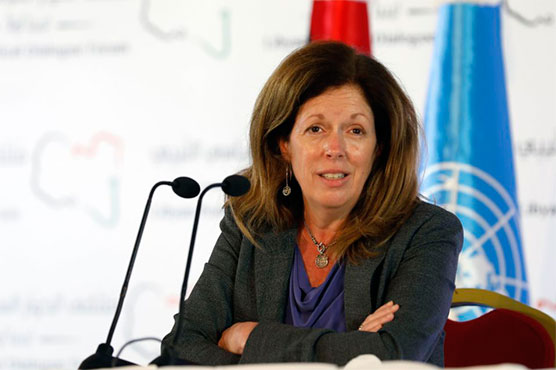UN-led Libya political talks resume virtually

Libyan delegates Monday resumed UN-led talks on a selection mechanism for an executive.
TRIPOLI (AFP) - Libyan delegates Monday resumed UN-led talks on a selection mechanism for an executive to help lead their country out of a decade of conflict, the United Nations said.
The meeting, a follow-up to discussions earlier this month in neighbouring Tunisia, was held virtually as the UN pushes efforts for peace in the war-scarred North African nation.
"You made significant steps forward and raised the Libyan people s hopes and expectations for the holding of national elections," the UN s interim Libya envoy Stephanie William told the delegates.
But she added: "There is much work left to be done to alleviate the suffering of Libyans."
Libya has been riven by conflict since a 2011 NATO-backed uprising that toppled and killed veteran dictator Moamer Kadhafi, with two rival administrations now dominating the country.
A UN-recognised government is based in the capital, while a House of Representatives (HoR) which does not recognise the Tripoli administration is based in the east.
In 2019, HoR-allied military commander Khalifa Haftar, backed by Russia and the United Arab Emirates, launched an offensive to seize Tripoli.
But after a year of bloody stalemate on the edges of Tripoli his forces were repelled by pro-unity government forces boosted by Turkish military support.
That led to a formal ceasefire deal in October.
Earlier this month, 75 delegates selected by the UN held a week of talks in Tunisia, where they agreed to hold national elections on December 24 next year.
They did not specify if the polls would be presidential, parliamentary or both, and the talks ended without agreement on appointing an interim administration to prepare for the elections.
Monday s virtual meeting focused on a "selection criteria" for the future administration, and the UN said the delegates will continue talks on Wednesday.
The session followed charges on social media that the Tunisia discussions had been tarnished by "corruption" and "bribery".
Williams said the reports have been referred to a UN panel of experts "given that such activities if proven to have occurred could constitute obstruction of the political process and be subject to sanctions".

